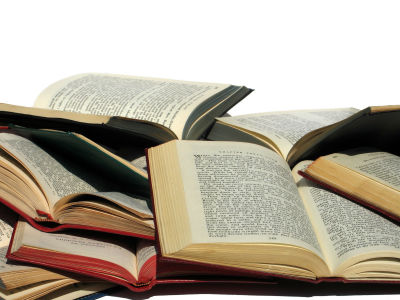The academic journal “Nature introduces better scientific papers” learned from scientists from novelists

No matter how great the research conducted by outstanding researchers, it cannot be appealed unless it is accurately communicated as a thesis. The academic journal “ Nature” has published such “how to write wonderful scientific papers” in the form of “advice given by scientists from novelists”.
Novelist Cormac McCarthy's tips on how to write a great science paper
https://www.nature.com/articles/d41586-019-02918-5
Nature introduces advice from theoretical novelist and ecologist Van Savage from American novelist Comack McCarthy combined with the idea of evolutionary biologist Pamela Ye . Mr. Savage had received editorial advice when writing scientific papers for 20 years since he met McCarthy when he was a graduate student.

Savage and Ye have summarized “17 Tips for Writing Great Scientific Papers” by McCarthy:
◆ 1:
Always think of words, sentences, paragraphs, or sections of them as necessary in light of the purpose, and be conscious of minimalism. Delete as many extra words and punctuation marks as possible.

◆ 2:
Decide on the theme of the paper and a few points you want all readers to remember, and make sure that all elements of the paper are linked to it. Omitted if it does not help the reader understand the main theme.
◆ 3:
The content described in one paragraph is limited to one message.
◆ 4:
Make sentences short, simply structured, and straightforward. Avoid using clauses and compound sentences that combine words, and diversions such as “how to” like this, so that the reader can focus on the main message.
◆ 5:
Words that require footnotes, such as technical terms and buzzwords, are not selected because they slow down the reading speed. In addition, I will get tired of using the same word repeatedly, so devise the expression.

◆ 6 :
Too much explanation is counterproductive. Adjectives are used only when particularly relevant, and the same section in the same section can be done in several ways, giving the reader abandonment.
◆ 7:
No need to worry about readers who want to discuss even derailed topics. Just enjoy writing the main message.
◆ 8:
Rather than sticking to grammar and creating perfect sentences, it is more important to be aware of ease of understanding.
◆ 9 :
Inserting commas (reading marks) is a breath when reading aloud, and is not intended to distinguish sentences from the front and back. You should read the text aloud and find a pause.

◆ 10:
The dash symbol is effective not only for defining terms but also for emphasizing important parts without using bold or italics. The semicolon is formal and only helps to write badly, so avoid exclamation marks and “surprisingly” or “intriguing” expressions once or twice in the paper.
◆ 11:
It is better to distinguish between scientific questions and non-formal parts and to write softly wherever you can use a friendly style. Non-personal and passive texts tend to be thought of as objective descriptions, but they are neither objective nor factual and difficult to communicate. Rather than saying 'The earth is the center of this solar system', it is more familiar and easy to read for the reader to write 'We are at the center of the solar system'.
◆ 12:
Tell them as a concrete metaphor, not an abstract expression. When talking about the color of an abstract sphere, it is more attractive to say “red balloon” or “blue billiard ball”.
◆ 13:
Do not place mathematical expressions in the middle of a sentence. Separate equations from text using line breaks, white space, capture sections, etc.
◆ 14:
After you think you ’re done, read it aloud to yourself and your friends. In particular, it is important to have a friend who spends your time firmly to be a reliable editor.

◆ 15:
When you are done, send it to the editor of the journal and forget about the paper. When there is a reply from the editor, the British novelist Rudyard Kipling may think of the following advice has left. “Even if everyone doubts you, you should trust yourself, but on the other hand, also acknowledge the thoughts of those who doubt you.”
◆ 16 :
Even if the editor points out how to use commas, how to use 'pretty', and the distinction between the relative pronouns 'that' and 'which'. Each magazine has its own rules, so it is important to follow them.
◆ 17:
Finally, when writing a paper, choose your best one, the one you like. You can't entertain an unspecified reader, but you can please yourself. Your paper will remain until later generations, so it's a good idea to think about how you read your first stimulated paper while you enjoyed writing it.
The above ideas are spoken as advice for writing scientific papers, but should be useful for writing all texts such as novels and columns as well as other academic papers. According to Mr. Savage and Mr. Yeh, the most important tip of Mr. McCarthy is to 'simply make it a consistent and compelling story'.
Related Posts:
in Science, Posted by log1e_dh







